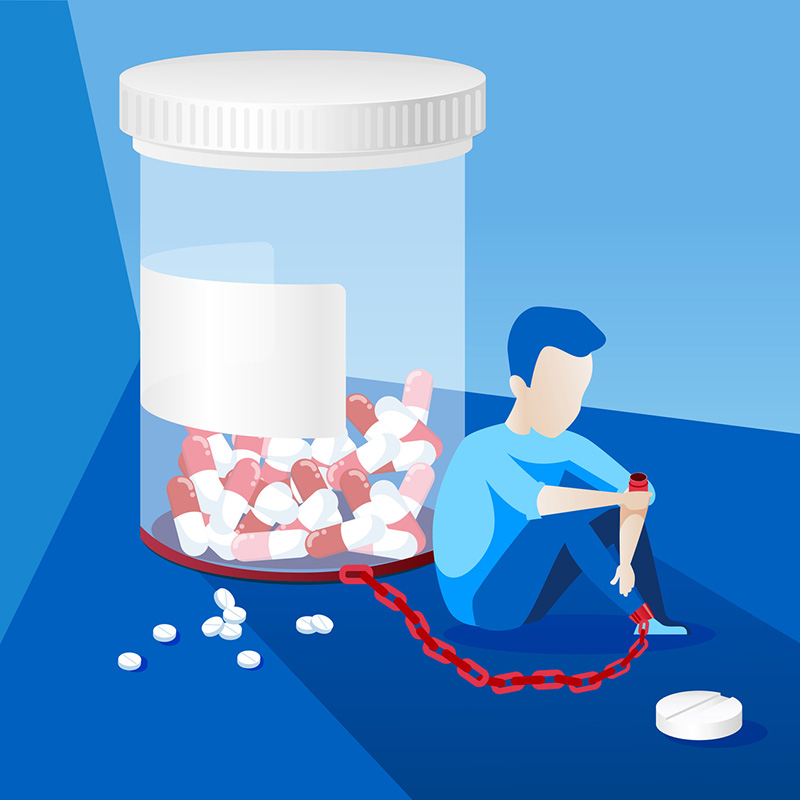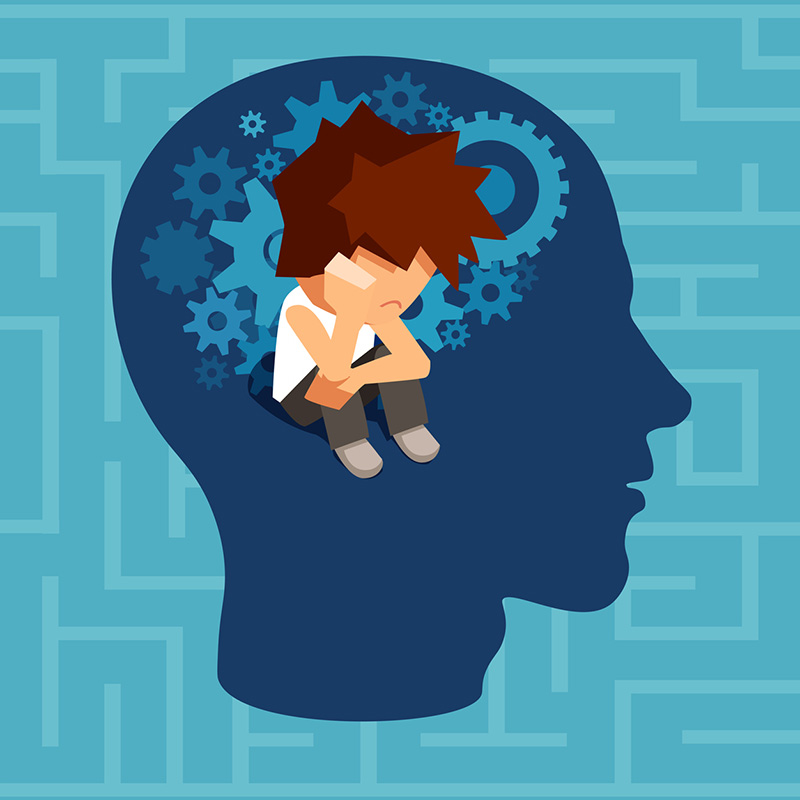
Understanding Substance Abuse: Common Causes and Long-Term Effects
Photo From Getty images
Originally Posted On: Understanding Substance Abuse | Causes and Effects of Addiction (sageclinic.org)
Millions of Americans suffer from substance abuse and addiction, starting from as early as 12 years old. A key to understanding this common affliction is knowing that the medical term for substance abuse is substance abuse disorder. This helps us better understand it as a disease rather than a choice. Like most diseases, substance abuse disorder is treatable, and knowing the root causes of substance abuse makes diagnosis and treatment of this common disease possible. Addiction can be scary, especially if you don’t know what you or your loved one is dealing with, why it’s happening, and how it can be helped.
What Is Substance Dependence?

Substance abuse disorder, or addiction, is a disease that affects the brain and behavior and leads to peoples’ inability to control their use of certain addictive substances. Substance abuse definitions can be misleading because they often infer that only illegal substances can be abused when people can abuse all kinds of substances, including legal ones. Alcohol, over-the-counter medications, opiates, stimulants, and prescription drugs are some of the most commonly abused substances in America.
Substance abuse is characterized by the steady need to increase dosage and usage of a particular drug or drugs to experience its effects and the need to use the drug regularly to feel good. Common symptoms are having intense urges that block other thoughts, spending excessive amounts of money on the drug (even if you know you can’t afford it) continuing to use the substance even if it causes problems in your life, taking risks to obtain the drug you normally wouldn’t, the inability to stop using it, experiencing withdrawal symptoms when you stop using the drug, and more.
Photo From Getty images
Biological and Psychological Causes of Addiction
There is still a lot of research being done into the various causes and effects of alcohol and drug abuse, and there is a long way to go until the disease is fully understood. However, several major factors can lead to people developing drug abuse problems.
Some of these factors are biological or psychological and could include one or more of the following causes:
Genetic Disposition to Abuse
You may have heard someone say they have “an addictive personality.” While we can’t really confirm that, many people are predisposed to having drug or alcohol abuse problems due to their genes. This may make them more likely to develop an abuse problem. However, not all people with a genetic predisposition develop drug or alcohol dependencies. Just because someone’s mother or father suffered a drug dependency does not necessarily mean the child will develop similar issues. In most cases, substance abuse arises from a complex combination of factors, and genetics could be one of them.
Mental Health
People with a history of mental health disorders are more likely to develop substance abuse problems than other people. Studies show that 60% of adolescents being treated for substance abuse disorder met diagnostic criteria for other mental illnesses as well. People diagnosed with substance abuse disorder are often simultaneously diagnosed with another mental health disorder, and vice versa.
Stress
People who experience excessive amounts of stress, no matter the cause, have an increased vulnerability to substance abuse. One way to define substance abuse is as a maladaptive coping strategy to stress. Exposure to stressors at an early age or for long periods throughout one’s life can cause chemical reactions in the brain, which increase the likelihood of developing addictive behaviors later in life.
Social and Environmental Factors
The environment in which one lives can significantly influence their lifestyle, choices, and preferences. For example, children and adolescents exposed to drug or alcohol abuse at home are more likely to start using substances themselves than children who are not. This is the clearest example of how the environment can influence people, but many other impactful social and environmental factors can lead to addictive behavior.
Childhood Neglect or Trauma

Photo From Getty images
There is a huge link between childhood trauma and adult substance dependency. During childhood is when people’s brains undergo the most change and development. Neural pathways are created, changed, and sometimes discarded due to environmental stimulation. A person’s brain development is seriously affected by the things that go on during childhood. Studies have shown that witnessing or receiving abuse, neglect, loss of a parent, or having a family member who suffers from a mental or physical illness during childhood often leads to people developing mental illness or substance abuse disorders as adults.
Poor Social Skills or Lack of Social Support
While familial or spousal support is often a key to recovery from substance abuse, lack of support is a key factor in developing a substance abuse problem. People who have a social support system or a cohesive family are much less likely to develop mental illnesses or substance abuse disorders.
Peer Pressure
Peer pressure has consistently been found to affect people’s likelihood of developing a dependency on substances, especially in teens and adolescents. Many individuals who developed a dependency early on were first encouraged to use that substance by their peers.
Believing Addictive Substances Aren’t Bad
People coming from communities, families, or peer groups in which drug or alcohol use is common are more likely to develop a substance dependency later on. This is especially true of teenagers and younger individuals who were never exposed to the idea that drug and alcohol use was a bad thing and were unaware of the inherent risks and side effects before developing substance dependency.
Behavior Linked Causes

Aside from the psychological and environmental factors leading to drug or alcohol dependency, many behavioral factors also impact an individual’s relationship with substances. Some of these include the desire to experience the feelings of pleasure that many drugs provide or to enhance performance or creativity. Other people develop addictions as an attempt to self-medicate for depression, chronic pain, and other problems. If people begin noticing that certain drugs or alcohol cures one of these problems or helps them perform better in a given area, they are more likely to continue desiring that effect and using the substance. Over time, repeated use leads to addiction, and they are unable to quit using the intoxicant.
Photo From Getty images
Long-Term Effects of Drug or Alcohol Abuse

Alcohol and drug abuse can lead to many serious long-term health problems, especially when used in large doses or in combination. Using drugs or alcohol can cause dehydration-induced seizures and damage immune systems. This increases susceptibility to infection and further complications, psychotic behavior, and serious cardiovascular conditions, including heart attacks and collapsed veins. It can also cause liver overexertion or liver failure, among other dangerous side effects.
As you can see, many factors might contribute to a person’s likelihood of developing addiction to substances, as well as many dangers and side effects involved. If you think your substance use may be turning into an addiction, or if someone you love is exhibiting behavior associated with substance abuse disorder, please contact Sage Clinic today to get the resources, care, and treatment you or your loved one needs to stop things from getting worse. Substance abuse is scary, and you should not face it alone. We care deeply about each of our patients and strive to offer the best care and addiction treatment available.
